History of the Indian National Congress
From its foundation on 28 December 1885 by A.O. Hume, a retired British officer, until the time India gained its independence on 15 August 1947, the Indian National Congress was the central and defining influence of the long Indian Independence Movement.
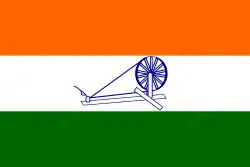
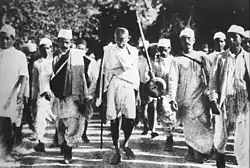
Formation and early days (1885 – 1905)
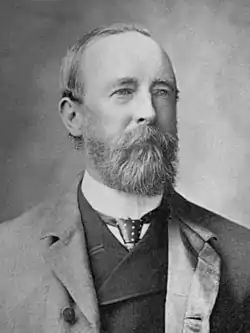
Retired British Indian Civil Service (ICS) officer Allan Octavian Hume founded the Indian National Congress (A political party of India (British India to Free India)) in order to form a platform for civil and political dialogue among educated Indians. After the Indian Rebellion of 1857, control of India was transferred from the East India Company to the British Empire. British-controlled India, known as the British Raj, or just the Raj, worked to try to support and justify its governance of India with the aid of English-educated Indians, who tended to be more familiar with and friendly to British culture and political thinking. Ironically, a few of the reasons that the Congress grew and survived, particularly in the 19th century era of undisputed British dominance or hegemony, was through the patronage of British authorities and the rising class of Indians and Anglo-Indians educated in the English language-based British tradition.
Hume embarked on an endeavor to get an organization started by reaching-out to selected alumni of the University of Calcutta. In an 1883 letter, he wrote that,
Every nation secures precisely as good a Government as it merits. If you, the picked men, the most highly educated of the nation, cannot, scorning personal ease and selfish objects, make a resolute struggle to secure greater freedom for yourselves and your country, a more impartial administration, a larger share in the management of your own affairs, then we, your friends, are wrong and our adversaries right, then are Lord Ripon's noble aspirations for your good fruitless and visionary, then, at present at any rate all hopes of progress are at an end[,] and India truly neither desires nor deserves any better Government than she enjoys.[1]
In May 1885, Hume secured the viceroy's approval to create an "Indian National Union", which would be affiliated with the government and act as a platform to voice Indian public opinion. Hume and a group of educated Indians came together on October 12 and published "An Appeal from the People of India to the Electors of Great Britain and Ireland" which asked British voters in the 1885 British general election to support candidates sympathetic to the positions of Indians. These included opposition to taxation of India to finance British campaigns in Afghanistan, and support for legislative reform in India.[2] The appeal however, was a failure, and was interpreted by many Indians as "a rude shock, but a true realization that they had to fight their battles alone."[3]
On 28 December 1885, the Indian National Congress was founded at Gokuldas Tejpal Sanskrit College in Bombay, with 72 delegates in attendance. Hume assumed office as the General Secretary, and Womesh Chunder Bonnerjee of Calcutta was elected President.[2] Besides Hume, two additional British members (both Scottish civil servants) were members of the founding group, William Wedderburn and Justice (later, Sir) John Jardine. The other members were mostly Hindus from the Bombay and Madras Presidencies.[2]
Policies of Indian National Congress during 1885–1905
Between 1885 and 1905, the Indian National Congress passed several resolutions in its annual sessions. Through the resolutions, the humble demands made by Congress included civil rights, administrative, constitutional and economic policies. A look at the resolution passed on these methods would be given an idea the directions of Congress programs were taking.
a) Civil Rights: The Congress leaders realized the value of freedom of speech and press, the right to organize processions, meetings and similar other rights.
b) Administrative: The Congress leaders urged the government to remove certain administrative abuses and run public welfare measures. They put emphasis on the appointment of Indians in the government services. Specific proposals are made to open agricultural banks for the relief of peasantry. The Congress leaders also raised the voice of protest against the discriminatory laws enacted by the government.
c) Constitutional: The humble demand made by the early Congress leaders in respect to constitutional matters were: to increase the power of legislative councils; to include elected Indian representatives. It must be mentioned here that the British government of India paid scant regard to the above demands made by Congress.
d) Economic: In the economic sphere, Congress blamed the wrong policies of the British that resulted in rising property and economic repression of the Indian pe. The Congress also put forward certain specific suggestions for the economic improvement of the country and her people. These included the introduction of modern industry, Indianization of public services, etc. The Congress also demanded the evolution of salt tax for the benefit particularly of the poor section of the people
Foreign Policy
Even before independence of India, the Indian National Congress had well articulated foreign policy positions. In the words of Rejaul Karim Laskar, a scholar of Indian foreign policy and an ideologue of Indian National Congress, "Right after the establishment of the Indian National Congress, it started articulating its views on foreign affairs. In its first session in 1885, the Indian National Congress deplored the annexation of upper Burma by British Indian Government." [4]
Muslim Response
Many Muslim community leaders, like the prominent educationalist Syed Ahmed Khan, viewed the Congress negatively, owing to its membership being dominated by Hindus. Orthodox Hindu community and religious leaders were also averse, seeing the Congress as supportive of Western cultural invasion.
The ordinary people of India were not informed of or concerned about its existence on the whole, for the Congress never attempted to address the issues of poverty, lack of health care, social oppression, and the prejudiced negligence of the people's concerns by British authorities. The perception of bodies like the Congress was that of an elitist, then educated and wealthy people's institution.
Rise of Indian nationalism
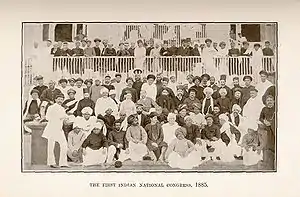
The first spurts of nationalistic sentiment that rose amongst Congress members were when the desire to be represented in the bodies of government, to have a say, a vote in the lawmaking and issues of administration of India. Congressmen saw themselves as loyalists, but wanted an active role in governing their own country, albeit as part of the Empire.
there ws a was personified by Dadabhai Naoroji, considered by many as the eldest Indian statesman. Naoroji went as far as contesting, successfully, an election to the British House of Commons, becoming its first Indian member. That he was aided in his campaign by young, aspiring Indian student activists like Muhammad Ali Jinnah, describes where the imagination of the new Indian generation lay.
Bal Gangadhar Tilak was among the first Indian nationalists to embrace swaraj as the destiny of the nation. Tilak deeply opposed the British education system that ignored and defamed India's culture, history, and values, defying and disgracing the India culture. He resented the denial of freedom of expression for nationalists, and the lack of any voice or role for ordinary Indians in the affairs of their nation. For these reasons, he considered swaraj as the natural and only solution: the abandonment of all the British things and to protect the Indian economy from the exploitation of the British, and their biased and discriminatory policies. He was backed by rising public leaders like Bipin Chandra Pal and Lala Lajpat Rai, Aurobindo Ghose, V. O. Chidambaram Pillai who held the same point of view. Under them, India's four great states – Madras, Bombay, Bengal, and Punjab region shaped the demand of the people and India's nationalism.
The moderates, led by Gopal Krishna Gokhale, Pherozeshah Mehta, and Dadabhai Naoroji, held firm to calls for negotiations and political dialogue. Gokhale criticized Tilak for encouraging acts of violence and disorder. The Congress of 1906 did not have public membership, and thus Tilak and his supporters were forced to leave the party.
With Tilak's arrest, all hopes for an Indian offensive were stalled. The Congress lost credit with the people. Muslims formed the All India Muslim League in 1906, considering the Congress as completely unsuitable for Indian Muslims.
World War I: the battle for the soul
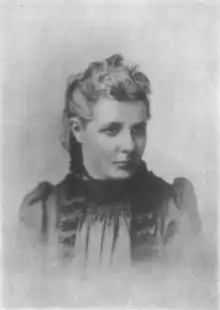
When the British entered the British Indian Army into World War I, it provoked the first definitive, nationwide political debate of its kind in India. Voices calling for political independence grew in number.
The divided Congress re-united in the pivotal Lucknow session in 1916, with efforts of Bal Gangadhar Tilak and Muhammad Ali Jinnah. Tilak had considerably moderated his views, and now favoured political dialogue with the British. He, along with the young Muhammad Ali Jinnah and Mrs. Annie Besant launched the Home Rule Movement to put forth Indian demands for Home Rule – Indian participation in the affairs of their own country – a precursor to Swaraj. The All India Home Rule League was formed to demand dominion status within the Empire.
But another Indian man with another way was destined to lead the Congress and the Indian struggle. Mohandas Gandhi was a lawyer who had successfully led the struggle of Indians in South Africa against British discriminatory laws. Returning to India in 1915, Gandhi looked to Indian culture and history, the values and lifestyle of its people to empower a new revolution, with the concept of non-violence, civil disobedience, he coined a term, Satyagraha.
Champaran and Kheda
Mohandas Karmchand Gandhi, who later on became more popular as Mahatma Gandhi, had success in defeating the British in Champaran and Kheda, giving India its first victory in the struggle for freedom. Then Indian National Congress had supported that movement; Indians gained confidence in the working of that organization that the British could be thwarted through that organization, and millions of young people from across the country flooded into Congress membership.
The Battle for the soul
A whole class of political leaders disagreed with Gandhi. Bipin Chandra Pal, Muhammad Ali Jinnah, Annie Besant, Bal Gangadhar Tilak all criticized the idea of civil disobedience. But Gandhi had the backing of the people and a whole new generation of Indian nationalists as well as British Raj.
In a series of sessions in 1918, 1919 and 1920, where the old and the new generations clashed in famous and important debates, Gandhi and his young supporters imbued the Congress rank-and-file with passion and energy to combat British rule directly. With the tragedy of the 1919 Amritsar Massacre and the riots in Punjab, Indian anger and passions were palpable and radical. With the election of Mohandas K. Gandhi to the presidency of the Indian National Congress, the battle of the party's soul was won, and a new path to India's destiny forged.
Lokmanya Tilak, whom Gandhi had called The Father of Modern India died in 1920, and Gopal Krishna Gokhale had died four years earlier. Motilal Nehru, Lala Lajpat Rai and some other stalwarts backed Gandhi as they were not sure that they can lead the people like Tilak and Gokhale. Thus it was now entirely up to Gandhi's Congress to show the way for the nation.
The Mahatma Gandhi era
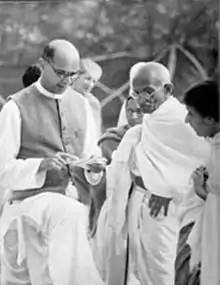
Expansion and re-organization
In the years after the World War, the Congress expanded considerably, owing to public excitement after Gandhi's success in Champaran and Kheda. A whole new generation of leaders arose from different parts of India, who were committed Gandhians Sardar Vallabhbhai Patel, Rajendra Prasad, Chakravarti Rajagopalachari, Narhari Parikh, Mahadev Desai — as well as hot-blooded nationalists aroused by Gandhi's active leadership — Chittaranjan Das, Subhas Chandra Bose, Srinivasa Iyengar.
Gandhi transformed the Congress from an elitist party based in the cities, to an organization of the people:
- Membership fees were considerably reduced.
- Congress established a large number of state units across India – known as Pradesh Congress Committees – based on its own configuration of India's states on basis of linguistic groups. PCCs emerged for Maharashtra, Karnataka, Gujarat — states that did not yet exist and were spread over hundreds of princely states outside British India.
- All former practices distinguishing Congressmen on basis of caste, ethnicity, religion and sex were eliminated — all-India unity was stressed.
- Native tongues were given official use and respect in Congress meetings – especially Urdu renamed by Gandhi as Hindustani, which was adopted for use by the All India Congress Committee.
- Leadership posts and offices at all levels would be filled by elections, and not by appointments. This introduction of democracy was vital in rejuvenating the party, giving voice to ordinary members as well as valuable practice for Indians in democracy.
- Eligibility for leadership would be determined by how much social work and service a member had done, not by his wealth or social standing.
Social development
During the 1920s, M.K. Gandhi encouraged tens of thousands of Congress volunteers to embrace a wide variety of organized tasks to address major social problems across India. Under the guidance of Congress committees and Gandhi's network of ashrams in Gujarat, Maharashtra, Uttar Pradesh, Bihar and Tamil Nadu, the Congress attacked:
- Untouchability and caste discrimination
- Alcoholism
- Unhygienic conditions and lack of sanitation
- Lack of health care and medical aid
- Purdah and the oppression of women
- Illiteracy, with the organization of national schools and colleges
- Poverty, with proliferating khadi cloth, cottage industries
This profound work by M. K. Gandhi impressed the people of India particularly, formations of ashrams, that in later period he was mentioned as Mahatma, Great soul, by way of honor, by people of India.
Ascendance to power (1937–1942)
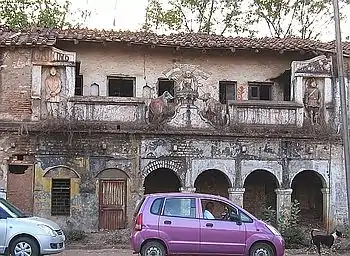
Under the Government of India Act 1935, the Congress first tasted political power in the provincial elections of 1937. It performed very well, coming to power in eight of the eleven provinces where elections were held. Its internal organization bloomed in the diversity of political attitudes and ideologies. The focus would change slightly from the single-minded devotion to complete independence, to also entertaining excitement and theorizing about the future governance of the nation. However, when the Viceroy Lord Linlithgow declared India a belligerent in World War II without any consultation with the elected representatives of the people, the Congress ministries resigned.
The radical followers of Subhas Chandra Bose, believers in socialism and active revolution would ascend in the hierarchy with Bose's 1938 election to the Congress presidency.
Traditionalists
According to one approach, the traditionalist point of view, though not in a political sense, was represented in Congressmen like Sardar Vallabhbhai Patel, Rajendra Prasad, C.Rajagopalachari, Purushottam Das Tandon, Khan Abdul Ghaffar Khan and Maulana Azad, who were also associates and followers of Gandhi. Their organizational strength, achieved through leading the clashes with the government, was undisputed and proven when despite winning the 1939 election, Bose resigned the Congress presidency because of the lack of confidence he enjoyed amongst national leaders. A year earlier, in the 1938 election, however, Bose had been elected with the support of Gandhi. Differences arose in 1939 on whether Bose should have a second term. Jawaharlal Nehru, who Gandhi had always preferred to Bose, had had a second term earlier. Bose's own differences centred on the place to be accorded to non-violent as against revolutionary methods. When he set up his Indian National Army in South-east Asia during the Second World War, he invoked Gandhi's name and hailed him as the Father of The Nation. It would be wrong to suggest that the so-called traditionalist leaders looked merely to the ancient heritage of Indian, Asian or, in the case of Maulana Azad and Khan Abdul Ghaffar Khan, Islamic civilization for inspiration. They believed, along with educationists like Zakir Husain and E W Aryanayakam, that education should be imparted in a manner that enables the learners also to be able to make things with their own hands and learn skills that would make them self-supporting. This method of education was also adopted in some areas in Egypt. (See Reginald Reynolds, Beware of Africans). Zakir Husain was inspired by some European educationists and was able, with Gandhi's support, to dovetail this approach to the one favoured by the Basic Education method introduced by the Indian freedom movement. They believed that the education system, economy and social justice model for a future nation should be designed to suit the specific local requirements. While most were open to the benefits of Western influences and the socio-economic egalitarianism of socialism, they were opposed to being defined by either model.
The final battles
The last important episodes in the Congress involved the final step to independence, and the division of the country on the basis of religions.
Quit India
Chakravarthi Rajagopalachari, the prominent leader from Tamil Nadu resigned from the Congress to actively advocate supporting the British war effort. it was started in 1942.
Indian National Army Trials
During the INA trials of 1946, the Congress helped to form the INA Defence Committee, which forcefully defended the case of the soldiers of the Azad Hind government. The committee declared the formation of the Congress' defence team for the INA and included famous lawyers of the time, including Bhulabhai Desai, Asaf Ali, and Jawaharlal Nehru. QUIT INDIA BILL passed on 8 Aug 1942.
Royal Indian Navy Mutiny
Some members of the Congress initially supported the sailors who led the Royal Indian Navy Mutiny. However, they withdrew support at the critical juncture, as the mutiny failed.
Partition of India
Within the Congress, the Partition was opposed by Khan Abdul Ghaffar Khan, Saifuddin Kitchlew, Dr. Khan Sahib and Congressmen from the provinces that would inevitably become parts of Pakistan. Maulana Azad, an Indian Islamic scholar, opposed partition in principle, but did not wish to impede the national leadership; preferred to stay with Indian side.
1947 – 1952: Transformation
Constitution
In the Assembly and Constitution debates, the Congress attitude was marked by inclusiveness and liberalism. The Government appointed some prominent Indians who were Raj loyalists and liberals to important offices, and did not adopt any punitive control over the Indian civil servants who had aided the Raj in its governance of India and suppression of nationalist activities.
A Congress-dominated Assembly adopted B.R. Ambedkar, a fierce Congress critic as the chairman of the Constitution draft committee. Syama Prasad Mookerjee, a Hindu Mahasabha leader became the Minister for Industry.
The Congress stood firm on its fundamental promises and delivered a Constitution that abolished untouchability and discrimination based on caste, religion or gender. Primary education was made a right, and Congress governments made the zamindar system illegal, created minimum wages and authorized the right to strike and form labor unions.
Leadership change
In 1947, the Congress presidency passed upon Jivatram Kripalani, a veteran Gandhian and ally of both Nehru and Patel. India's duumvirate expressed neutrality and full support to the elected winner of the 1947, 1948 and 1949 presidential races.
However, a tug of war began between Nehru and his socialist wing, and Patel and Congress traditionalists broke out in 1950's race. Nehru lobbied intensely to oppose the candidacy of Purushottam Das Tandon, whom he perceived as a Hindu revivalist with "problematic" views on Hindu-Muslim relations. Nehru openly backed Kripalani to oppose Tandon, but neglected courtesy to Patel upon the question.
With Patel's tacit support (especially in Patel's home state of Gujarat, where due to Patel's work, Kripalani received not one vote) Tandon won a tight contest, and Nehru threatened to resign. With Patel's convincing, Nehru did not quit.
However, with Patel's death in 1950, the balance shifted permanently in Nehru's favor. Kripalani, C. Rajagopalachari and Tandon were marginalized, and the Congress Party's election fortunes began depending solely on Nehru's leadership and popularity. With the 1952 election sweep, the Congress became India's main political party.
References
- B. Pattabhi Sitaramayya (1935), The History of the Indian National Congress, Working Committee of the Congress
- John F. Riddick (2006), The History of British India: a chronology, Greenwood Publishing Group, ISBN 0-313-32280-5
- Madhvi Yasin (1996), Emergence of nationalism, Congress, and separatism, Raj Publications, ISBN 81-86208-05-4
- Laskar, Rejaul Karim (2013). India's Foreign Policy: An Introduction. New Delhi: Paragon International Publishers. p. 5. ISBN 978-93-83154-06-7. Retrieved 8 March 2018.
Further reading
- Patel: A Life Rajmohan Gandhi
- My Autobiography, or The Story of My Experiments with Truth, M.K. Gandhi
- Sardar Vallabhbhai Patel, Narhari Parikh